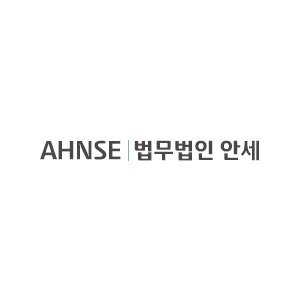Best Mining Law Lawyers in Seoul
Share your needs with us, get contacted by law firms.
Free. Takes 2 min.
List of the best lawyers in Seoul, South Korea
About Mining Law in Seoul, South Korea
Mining Law in Seoul, South Korea, refers to the body of legal rules and regulations governing the exploration, extraction, and processing of mineral resources within the city and throughout the country. Despite Seoul being a highly urbanized area with limited mining activity, the national legal framework, particularly the Mining Industry Act, still plays a fundamental role in regulating how mineral resources are discovered and utilized across the Republic of Korea. These laws control the issuance of exploration and mining licenses, environmental protection standards, land use, safety requirements, and the rights of both public and private stakeholders involved in the mining sector.
Why You May Need a Lawyer
Engaging a lawyer with expertise in mining law is crucial when facing various legal scenarios. Common situations requiring legal assistance include:
- Applying for or challenging a mining right, exploration license, or permit
- Negotiating contracts with landowners, joint venture partners, or the government
- Dealing with land use conflicts, property rights, or surface and subsurface rights issues
- Navigating environmental regulations and compliance requirements
- Managing disputes with contractors, suppliers, or local communities
- Undertaking due diligence for mergers, acquisitions, or investments in the mining sector
- Addressing allegations or investigations related to safety, environmental offenses, or illegal mining
A qualified mining law attorney provides legal guidance, helps prevent regulatory violations, and represents your interests in negotiations or court proceedings.
Local Laws Overview
In Seoul and South Korea in general, mining activities are regulated primarily through the Mining Industry Act, the Framework Act on the Management of Disasters and Safety, and several environmental protection statutes. Key points include:
- Exploration and Mining Licenses: Individuals or companies must obtain proper permits from the Ministry of Trade, Industry and Energy to explore or develop mineral resources.
- Environmental Regulations: The Environmental Impact Assessment Act and related regulations require detailed environmental impact studies before mining projects proceed.
- Land Use and Rights: Mining projects must respect existing land ownership, whether public or private, and obtain agreements or compensation where necessary.
- Safety Standards: There are strict safety rules related to mine operation and worker protection, enforced by government agencies.
- Community and Stakeholder Engagement: Public hearings or consultations may be required, especially if projects impact local land or communities.
- Taxation and Royalties: Companies must pay appropriate taxes and royalties on extracted minerals, as detailed in the relevant statutes.
Frequently Asked Questions
What is the main legal framework governing mining in South Korea?
The primary legal framework is the Mining Industry Act, supported by additional regulations such as the Environmental Impact Assessment Act and local land use laws.
Can foreign companies engage in mining activities in Seoul or South Korea?
Foreign companies can participate in mining, but they must comply with all legal requirements, including obtaining relevant permits and registering business activities within South Korea.
What types of permits are required for mining exploration and operation?
You generally need to secure an exploration right first, followed by a mining right once commercial quantities of minerals are identified. Additional permits may be required for environmental and safety compliance.
How long does it take to obtain a mining license?
The duration varies depending on the completeness of the application, environmental reviews, and other regulatory checks. It can take several months or more for comprehensive licenses.
Are there restrictions on where mining can occur?
Yes, mining is prohibited or highly restricted in protected areas, environmentally sensitive zones, and urbanized districts. In most cases, large-scale mining does not occur within central Seoul.
What are the penalties for illegal mining or violating mining laws?
Penalties include fines, seizure of equipment, suspension of mining rights, and, in severe cases, criminal prosecution.
What environmental obligations do mining companies have?
Mining companies must conduct environmental impact assessments, receive approval before operations begin, and adhere to reclamation and pollution control standards.
Do landowners have rights to minerals found on their land?
In South Korea, mineral rights generally belong to the state, regardless of land ownership. Landowners may be entitled to compensation for land use or disruption.
How are mining disputes resolved?
Disputes may be settled through negotiation, mediation, administrative review, or litigation in the national courts.
What should I do if I want to invest in mineral resources in Seoul or South Korea?
Begin by consulting a lawyer familiar with local mining law. Conduct due diligence, check the legal standing of potential partners, and ensure compliance with investment and mining regulations.
Additional Resources
Several resources and governmental bodies can provide valuable information and support related to Mining Law in Seoul, South Korea:
- Ministry of Trade, Industry and Energy - in charge of mining permits and regulation
- Korea Resources Corporation (KORES) - provides information on mining projects and policies
- Korea Environmental Industry and Technology Institute - for environmental standards and compliance
- Seoul Metropolitan Government - for local land use and zoning regulations
- Local and international law firms specializing in energy and natural resources law
Next Steps
If you require legal assistance with Mining Law in Seoul, South Korea, consider these steps:
- Gather all relevant documents and information related to your mining interests or activities.
- Identify your specific legal needs, such as licensing, compliance, disputes, or investment inquiries.
- Contact a reputable law firm or attorney specializing in Mining Law and related regulatory matters.
- Schedule a consultation to discuss your situation, potential risks, and options available to you under South Korean law.
- Follow the guidance provided and ensure ongoing compliance with all applicable regulations.
Taking proactive steps and seeking expert legal counsel can help protect your interests and ensure a smoother experience navigating the complex field of Mining Law in Seoul, South Korea.
Lawzana helps you find the best lawyers and law firms in Seoul through a curated and pre-screened list of qualified legal professionals. Our platform offers rankings and detailed profiles of attorneys and law firms, allowing you to compare based on practice areas, including Mining Law, experience, and client feedback.
Each profile includes a description of the firm's areas of practice, client reviews, team members and partners, year of establishment, spoken languages, office locations, contact information, social media presence, and any published articles or resources. Most firms on our platform speak English and are experienced in both local and international legal matters.
Get a quote from top-rated law firms in Seoul, South Korea — quickly, securely, and without unnecessary hassle.
Disclaimer:
The information provided on this page is for general informational purposes only and does not constitute legal advice. While we strive to ensure the accuracy and relevance of the content, legal information may change over time, and interpretations of the law can vary. You should always consult with a qualified legal professional for advice specific to your situation.
We disclaim all liability for actions taken or not taken based on the content of this page. If you believe any information is incorrect or outdated, please contact us, and we will review and update it where appropriate.















